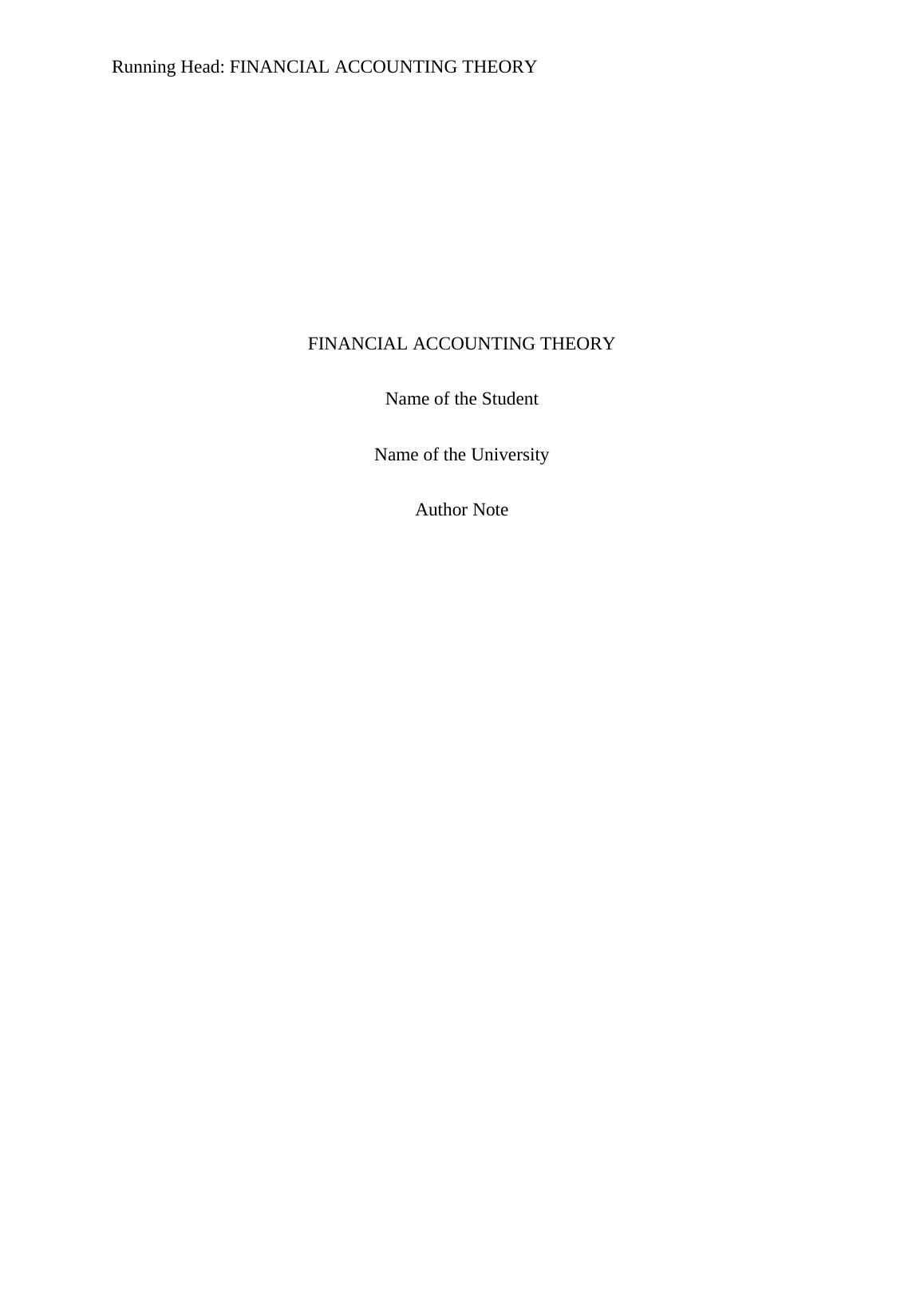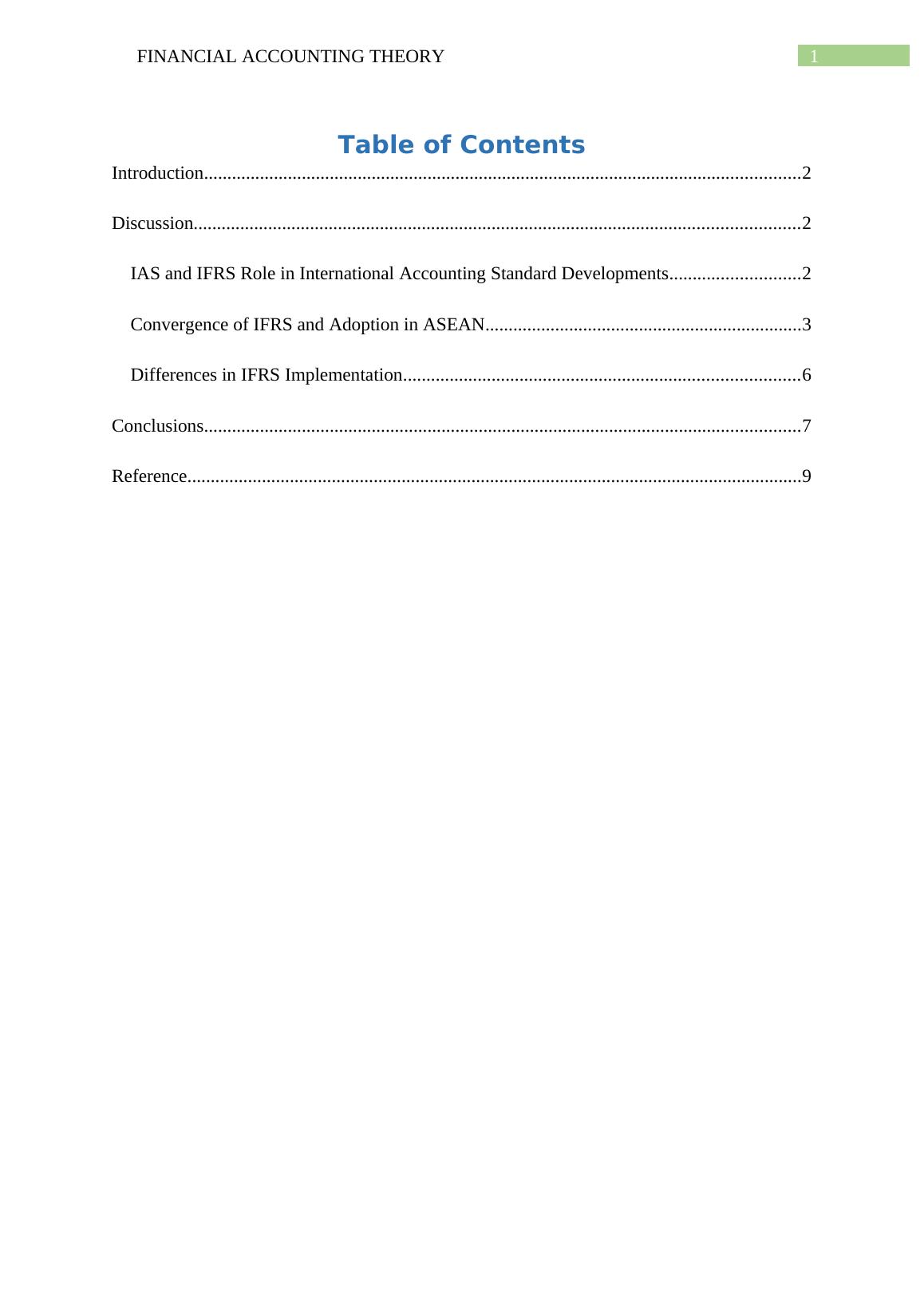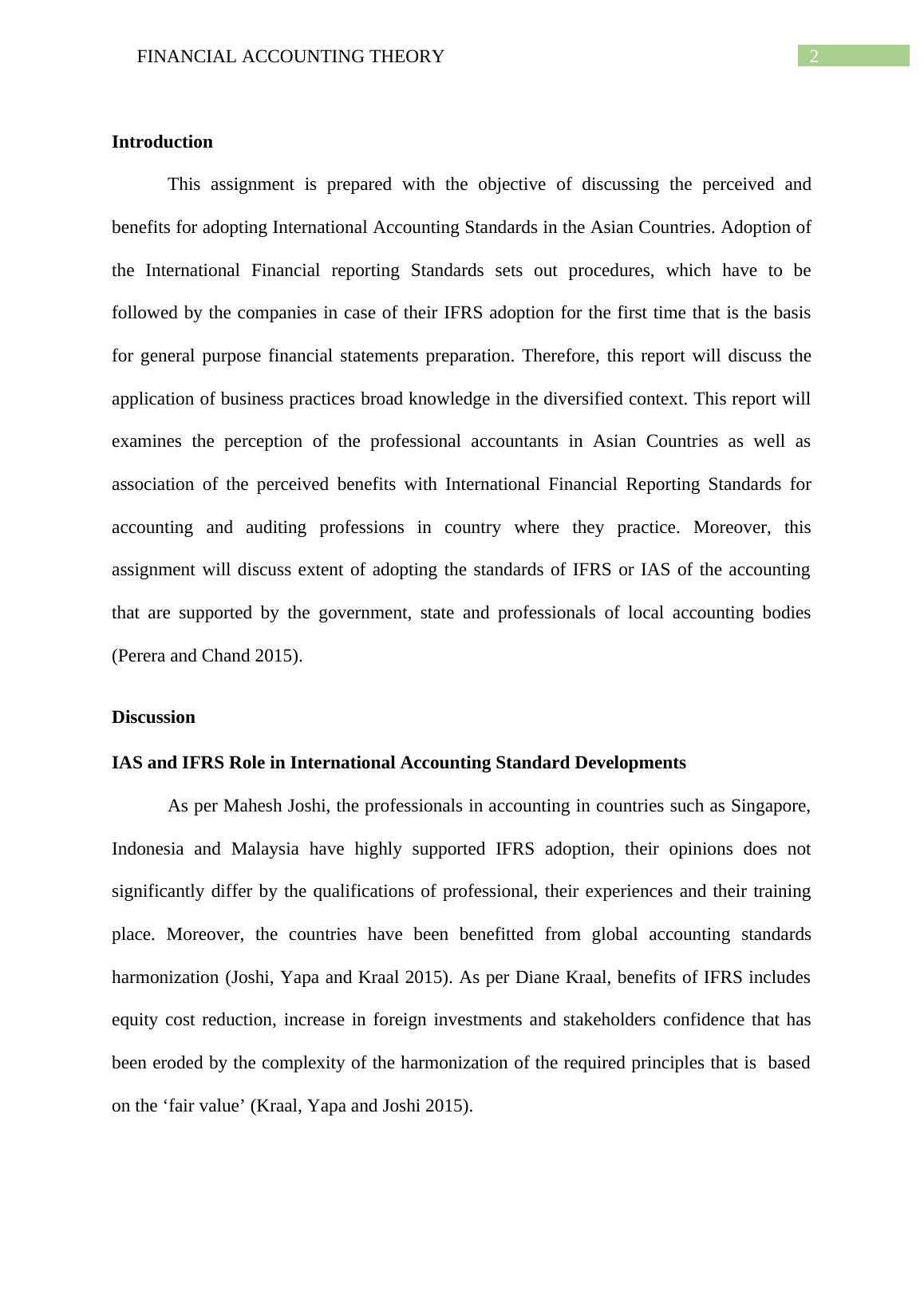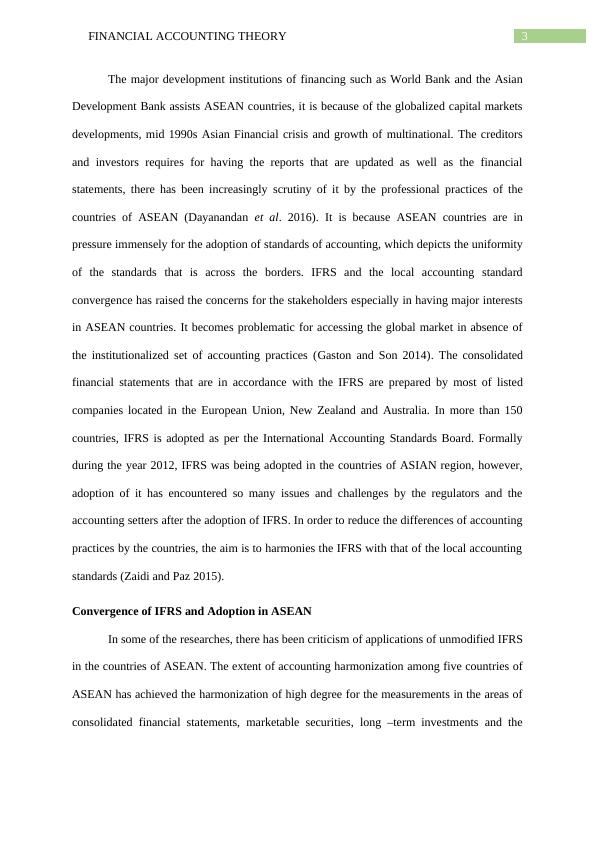Adoption of IFRS in ASEAN Countries
12 Pages2237 Words130 Views
Added on 2023-03-31
About This Document
This assignment discusses the perceived benefits and challenges of adopting International Financial Reporting Standards (IFRS) in ASEAN countries. It examines the role of IAS and IFRS in international accounting standard developments and the convergence of IFRS in ASEAN. The differences in IFRS implementation and the benefits of IFRS adoption are also discussed.
Adoption of IFRS in ASEAN Countries
Added on 2023-03-31
ShareRelated Documents
End of preview
Want to access all the pages? Upload your documents or become a member.
Perceived Costs and Benefits of Adopting International Accounting Standards in Asian Countries
|9
|2694
|62
Perceived Costs and Benefits of IFRS Adoption in Asian Countries
|12
|2457
|386
Harmonization in IFRS rules and regulations - Amara Holdings case study
|25
|4830
|435
International Financial Reporting Standards
|12
|2963
|252
Accounting Financial Analysis Report
|12
|4244
|264
Accounting Theory and Application
|11
|3683
|62




